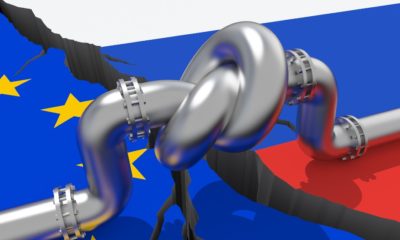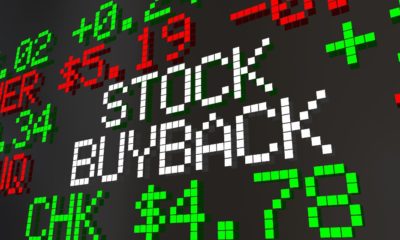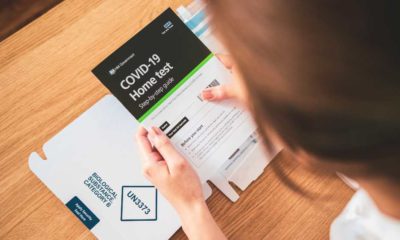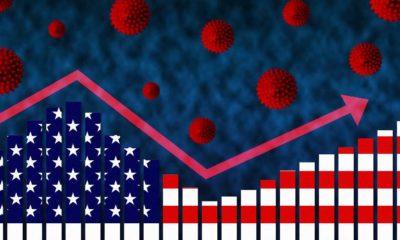US News
The U.S. May Soon Have a Vaccine Surplus
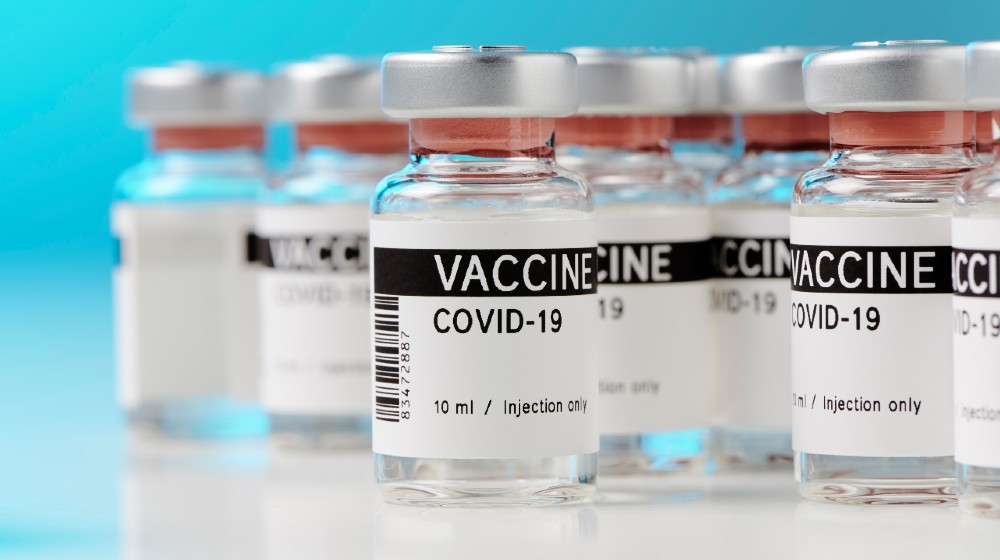
With its America-first vaccine strategy, the U.S. is nearing a point when it will have enough supply to offer the COVID-19 vaccine to all adult Americans. Current predictions suggest that will happen by the end of May.
RELATED: Trump Urges Supporters to Get A COVID-19 Vaccine
The U.S. May Soon Have a Vaccine Surplus. Here’s What That Means for Canada
So, once America is vaccinated first, the question inevitably becomes: Who’s second in line?
U.S. Secretary of State Antony J. Blinken this week hinted at talks that are happening on that front, after months of the United States keeping all of its Pfizer, Moderna, and Janssen supply to itself, and only distributing four million AstraZeneca doses as “loans” to Canada and Mexico. Blinken said the Biden administration wants to “rise to the occasion worldwide” and start sharing soon.
“By the end of May, we’ll have enough vaccine supply for all adults in America,” Blinken said Monday. “As we get more confident in our vaccine supply here at home, we are exploring options to share more with other countries going forward. We believe that we’ll be in a position to do much more on this front.”
The World Health Organization has called for the U.S. to start donating vaccine supply to countries that need it most, especially developing countries. Experts say America also has an interest in vaccinating its immediate neighbors, Canada and Mexico.
So when America has a vaccine surplus, where will it go?
Why has America been able to vaccinate so quickly compared to Canada?
The first reason is that the U.S. has access to a lot more vaccines than Canada does. Vaccines are being produced in America, while they are not being produced in Canada.
The second reason is that the government in the U.S. has been investing more and more resources in distributing vaccines — paying health care workers to give vaccines, for example — as its supply has grown. That’s meant that, since vaccines became available in December, the United States went from vaccinating fewer than one million people a day to about three million a day.
Canada has also ramped up its vaccination resources, but that has happened more slowly. As of Tuesday, Canada had administered just over six million first doses of vaccine — an amount equivalent to two days’ worth of vaccinations at the current rate in the U.S.
Will Canada get a vaccine from America when all Americans are vaccinated?
Probably. But it’s unclear exactly when and how many vaccines will be allocated to Canada.
U.S. President Joe Biden and his administration have expressed a desire to share vaccines on a multilateral basis — including to Canada. Two barriers need to be overcome before that can happen.
The first is simply the America-first strategy the U.S. is using. The country is prioritizing protecting Americans directly with vaccine doses, first, the State Department said.
“Canada has remained our partner throughout the pandemic, including as we coordinate travel restrictions across our shared border to protect public health,” reads a portion of a statement sent to the Star from the State Department. “As President Biden has made clear, the United States supports multilateral approaches and will work as a partner to address global challenges.”
There is also a barrier baked into the contract language between the U.S. government and vaccine manufacturers that may make it difficult for the country to share vaccines.
In a groundbreaking story citing copies of the contracts between the U.S. government and vaccine companies, Vanity Fair reported that as part of the negotiations for “Operation Warp Speed” the government agreed to contract language that commits to keeping vaccines in America.
“The Government may not use, or authorize the use of, any products or materials provided under this Project Agreement unless such use occurs in the United States,” Vanity Fair reported the contracts with Pfizer, Moderna, AstraZeneca, and Janssen state.
The reason is a 2005 law called the Public Readiness and Emergency Preparedness Act, which protects manufacturers from liability if someone is sick or injured due to anything related to vaccination — but only within the United States. Trump administration officials involved in negotiating the Operation Warp Speed contracts said that the requirement to keep vaccines in the U.S. as a condition of the manufacturers, according to Vanity Fair.
OK, so where are the vaccines Canada has purchased currently coming from?
All four of the approved vaccines are being produced in the U.S., but, because of the America-first strategy, that is not where most of Canada’s supply is coming from.
For example, Canada has an advance purchase agreement with AstraZeneca to buy 20 million doses of the vaccine. Canada expects those doses to come from the United States — eventually. In the meantime, Canada’s AstraZeneca supply is coming from the Serum Institute of India and a loan of doses from the U.S.
Canada also expects to eventually get some of its Johnson & Johnson vaccine from the U.S. Canada’s Pfizer and Moderna doses are expected to come from elsewhere.
“As a result of our diversified procurement approach, we are pulling vaccine from multiple locations around the world including Europe, India, South Korea, and the United States,” reads a portion of a statement provided by Procurement Minister Anita Anand to the Star.
But hasn’t Canada already received vaccines from the U.S.?
Yes. Canada has received 1.5 million doses of AstraZeneca vaccines produced in the United States.
But those vaccines were technically not donated or sold to Canada by the Americans. They were given on loan, which may have been a technicality that allowed the U.S. to help its neighbors without violating the America-first strategy and clauses in its contracts with the vaccine manufacturers.
Roy Norton, a former Consul General for Global Affairs Canada in several U.S. cities and current professor at the Balsillie School of International Affairs in Waterloo said his best guess is that the Americans will be more than happy to sell vaccines to Canada once all American adults are taken care of.
“Americans would not have tolerated vaccinating other people with U.S. vaccines funded by U.S. tax dollars first,” Norton said. “I guess that if there had been risking of a holdback of the vaccines that Canada has contracted for, that risk is now evaporated — or will have soon evaporated — and we’ll be able to buy and receive the vaccines we have contracted for.”
Given the amount of production capacity in the U.S., if Norton’s prediction proves correct, Canada will likely be able to fill its orders for vaccines more quickly once the U.S. has achieved its vaccination goals.
Doesn’t the U.S. want Canada to be vaccinated so that the land border can open?
The U.S. does want the land border to open, and its representatives have cited vaccination as a key reason to do so.
Rep. Brian Higgins told the Star this week that vaccines were a “game-changer” and that the U.S. and Canada should start hammering out a plan to open the border gradually, starting with allowing business trips and family visits.
“With vaccines, we do have the upper hand,” he said, even if variants of the coronavirus end up requiring yearly inoculations, as some experts suggest.
Right now it’s Canada, not the U.S. that’s putting the brakes on those plans. It’s not clear whether the border opening is being used as a bargaining chip in discussions about getting Canada vaccinated with U.S. doses.
Arthur Caplan, a professor of medical ethics at the NYU Grossman School of Medicine who has defended America’s U.S.-first vaccine policy, said there are other reasons why it makes sense for the U.S. to share with its neighbors next.
“I think we should share with Canada and Mexico,” Caplan said. “We’ve got historic ties with both, we’re trading partners. It just makes sense to help your neighbors.”
Plus there’s the fact that, when border restrictions do loosen, there is likely to be much more movement between the U.S. and its neighboring countries than those outside of North America.
“Some people would say just take the vaccine and just give it one per cent to every country in the world, but I think what our obligations are to take care of our family,” he said.
With a file from Tonda MacCharles
You Might Also Like:
- COVID-19 UK Variant is Now The Most Common Strain in the US
- Florida Governor Sues CDC To Allow Cruises Now
- America Is Facing A Ketchup Shortage
Keep up to date with the breaking news by following us on Facebook and Instagram.

